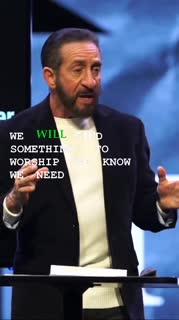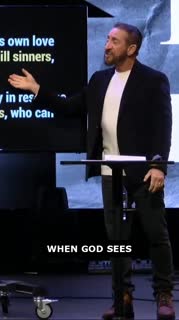Restoring Human Dignity Through Christ's Love and Grace
Devotional
Sermon Summary
Bible Study Guide
Sermon Clips
We know and by the way this goes all the way back to third century BC the stoic philosophers of greece they believed too that human beings were intrinsically worthy inherently deserving of respect of different treatment that that we were different we were superior creatures now you know the bible says it very much we were superior creatures we were superior creatures we were superior it says that we were created in the image of god we were created by christ the bible says and for christ and so being human means that you have a very esteemed high calling i'm going to talk about this more as this message goes on we tend not to realize what an extraordinary uh gift it has been to be chosen and we have been chosen just to be human [00:51:56] (45 seconds)
We will find something to worship we know we need a central organizing principle for our life whatever we are getting actually getting our sense of significance our sense of security and our sense of satisfaction from that is in fact what we worship we might be worshiping money we might be worshiping popularity we might be worshiping power there could be all kinds of different things it might be a person might be might be some experience but we will find something as the central supreme organizing principle of our life in other words we will find what we consider at the the supreme value and we will worship it [01:02:49] (34 seconds)
Human beings deserve respect they deserve to be literally treated differently because they are simply human made by christ and made for christ well let's get on the other side of this how do we see our dignity our god -given dignity how do we see it restored what did christ do in this situation to restore this woman's dignity because it's a pattern that he does with this lady he wants to do with us and some of us have had our dignity robbed and some of us are still traumatized by it and some of us have people in our lives and their dignity's been robbed and we would like to help them but we don't exactly know how to help them so hopefully the rest of this passage will help in that regard [01:21:47] (44 seconds)
When god sees us even at our worst he loves us and he proved that love by christ going to the cross for us it is a physical demonstration in time of god's own ongoing eternal love for us you need to internalize that i need to internalize that when we are at a rock bottom worse god still looks and says i love you and i want to rescue you come on let's get moving together let's get out of this place while he demonstrates his love for us while we were still sinners christ died for us [01:25:50] (29 seconds)




